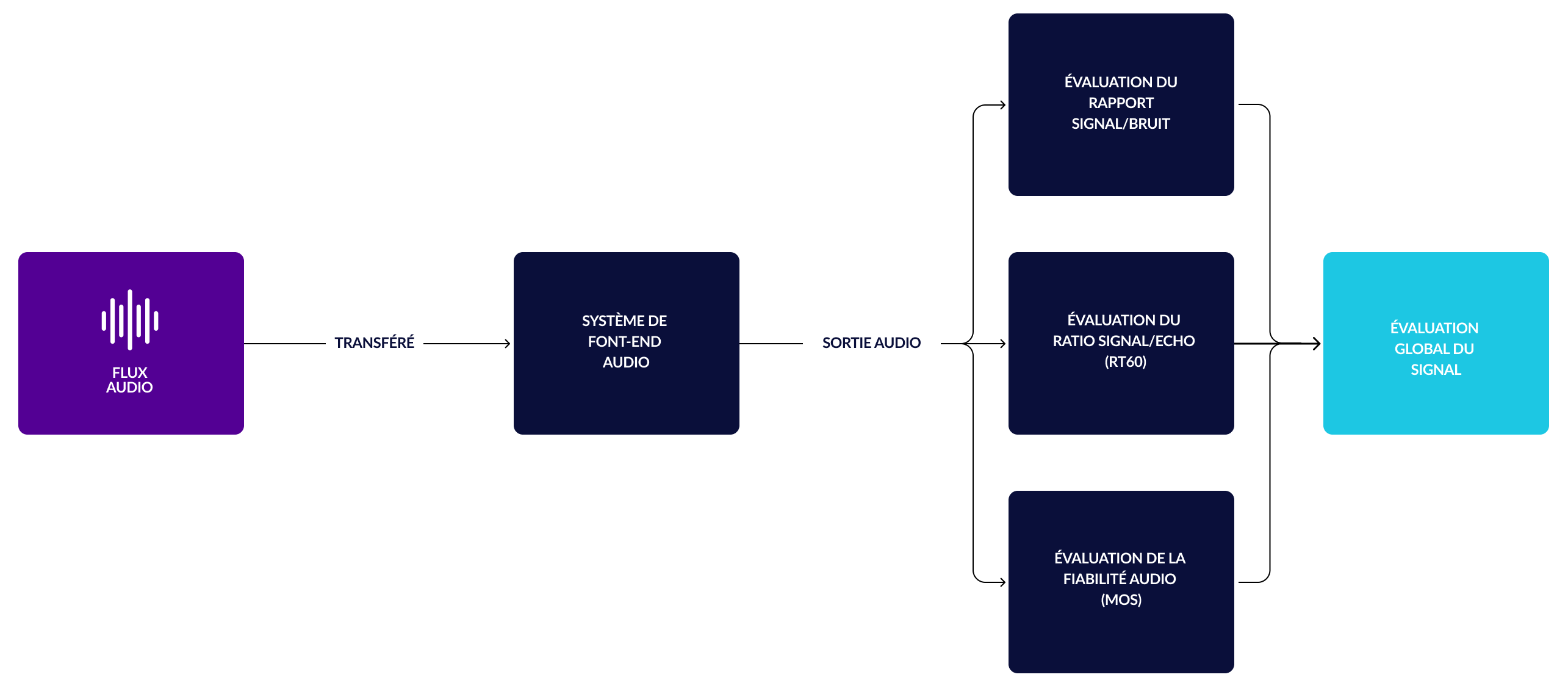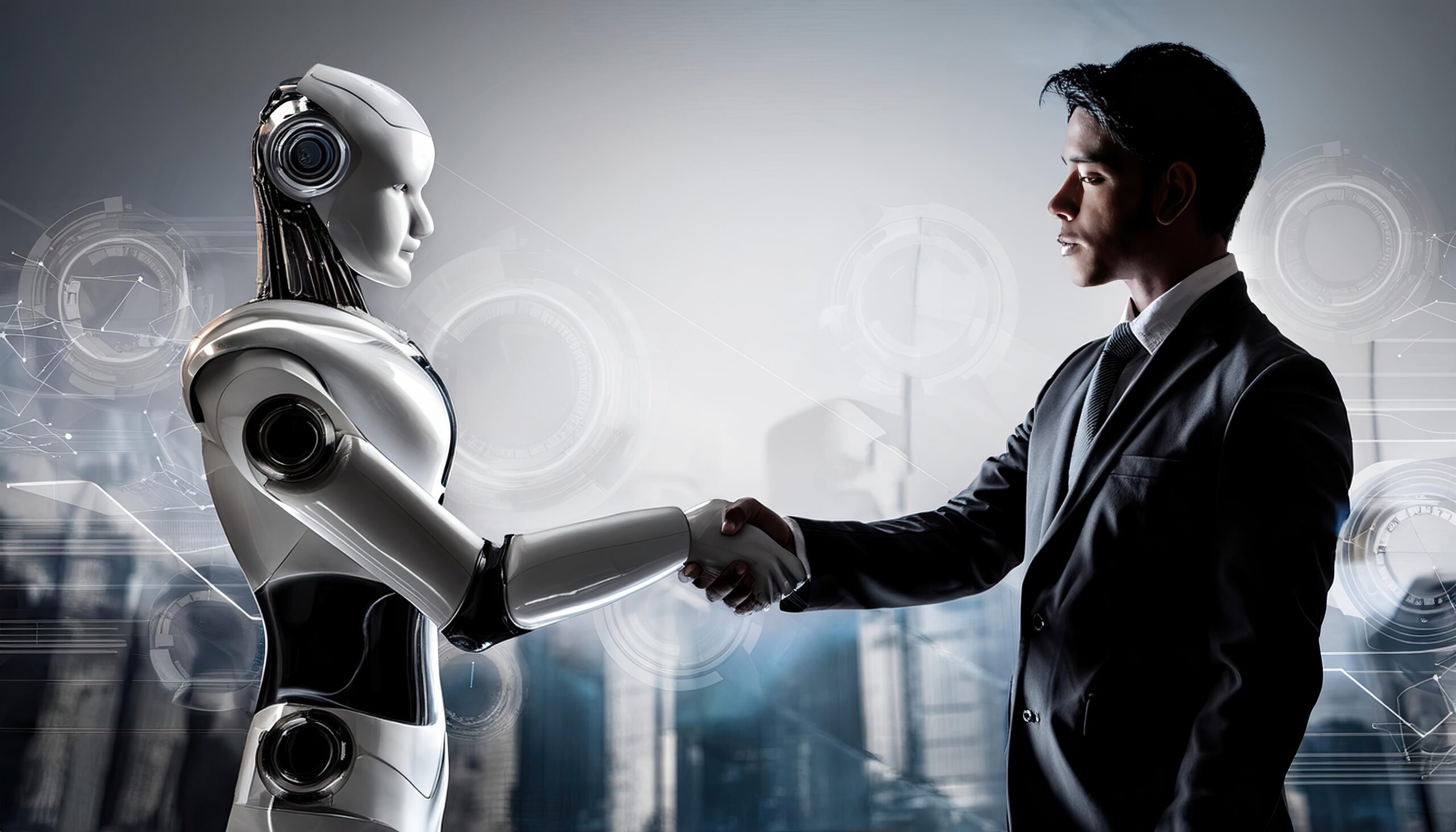The future of AI and emerging technologies in businesses holds transformative changes and open the door to many new opportunities. Artificial Intelligence, particularly voice AI, has reached unprecedented levels of use and precision, becoming an essential tool for enhancing operations’ productivity and operational efficiency across various sectors.

However, the integration of AI in systems will also raise several key considerations and challenges that industries will need to address to fully harness its potential.
Automation and workforce transformation
AI is revolutionizing industries through automation. Machines and algorithms now perform repetitive and data-heavy tasks more efficiently than humans. As these systems become smarter, they are able to take on even more complex operations, significantly reducing operational costs and improving overall efficiency. In manufacturing and logistics, voice-controlled AI solutions significantly enhance workers’ efficiency by enabling hands-free operations. With systems like “pick by voice”, workers can complete tasks such as order picking, inventory checks, and quality control using simple voice commands. This reduces the need for physical interactions with devices, allowing workers to focus on their tasks without interruptions. The result is a more streamlined workflow, minimizing errors, improving productivity, and reducing the physical strain on workers by freeing up their hands for essential tasks. This hands-free approach is especially beneficial in fast-paced environments like warehouses and assembly lines. This digitalization is one step forward Industry 4.0.
Yet, the widespread adoption of AI brings significant changes to the workforce. Certain jobs are led to evolve, since AI enables people to focus on the most critical tasks, while automating supporting tasks. Some others will require new skills, pushing industries to invest in retraining and upskilling employees. Voice AI takes this a step further by offering more intuitive interaction with AI systems, making it easier for employees to access information, give commands, or track project progress without needing to navigate through complicated interfaces. This smooth interaction not only streamlines operations but also empowers workers to make faster, more informed decisions, ultimately enhancing their role in the workplace.
And this adoption is particularly crucial in sectors like manufacturing and field service, where workers must adapt to new technologies. Striking a balance between AI automation and human labor is critical for the future. Companies must manage this transition carefully to avoid workforce displacement and ensure employees can effectively collaborate with AI. For instance, providing training programs focused on digital literacy and specific AI-related skills will empower workers to thrive in an increasingly automated landscape.
Predictive analytics and decision-making
AI’s capacity to analyze vast datasets enables industries to make more informed, proactive decisions. Predictive analytics can foresee equipment failures, supply chain disruptions, and even market trends, allowing companies to address issues before they escalate. For example, predictive maintenance in manufacturing can significantly reduce downtime by alerting technicians to potential equipment issues before they occur. Similarly, in retail, AI can forecast demand trends, allowing businesses to optimize inventory levels and reduce excess stock.
This capability is especially valuable. However, managing the complexity of data and ensuring AI systems are trained with high-quality, relevant information will be key challenges that industries must navigate.

Companies must invest in data management strategies to clean, organize, and analyze their data effectively, which will be critical for maximizing AI’s predictive capabilities. By incorporating voice technology, the process of data entry and retrieval becomes more efficient. Workers can verbally input real-time data or request insights on-demand, streamlining workflows and reducing time spent on administrative tasks. This seamless interaction ensures that relevant information is gathered quickly, improving the overall accuracy and responsiveness of AI-run systems.
Implementing voice control in industrial transformation enhances productivity by enabling hands-free operations and reducing manual interactions, leading to fewer errors and improved workers safety. It offers operational flexibility and scalability across diverse environments, making it cost-efficient in the long run. Voice control systems also support a diverse workforce by accommodating multiple languages and accents, and integrate seamlessly with advanced technologies like AI and IoT. This adaptability is crucial in modernizing workflows and boosting real-time data processing and decision-making, further underlining its value in industrial settings.
Ethical concerns and data privacy
The rise of both AI and voice technologies also introduces ethical concerns, particularly around data usage and privacy. AI systems require substantial data to function effectively, raising challenges regarding data protection and bias in decision-making. Companies will need to leverage AI while safeguarding personal data, ensuring transparency in algorithms, and addressing potential biases in AI-driven decisions. The recent emphasis on data privacy regulations, such as the GDPR in Europe, has heightened the need for industries to comply with stringent guidelines while still harnessing the power of AI.
A common concern with voice-based devices is the potential for conversations to be recorded or sensitive data to be collected. However, with Vivoka’s solution, this worry is alleviated. Since our technology works offline and processes data locally, meaning no audio, nor data are sent to external servers or stored in a cloud. This disconnection ensures that all interactions remain private and secure, giving companies peace of mind. Vivoka’s voice technology ensures data security while maintaining reliability in environments with limited connectivity. It allows businesses to confidently adopt AI, ensuring uninterrupted operation in warehouses and remote facilities, even without data access.
Fostering a culture of transparency and accountability in AI practices can help build trust among artificial intelligence and technology users, ensuring that Artificial Intelligence assets are realized without compromising ethical standards.
In noisy environments like warehouses, where machinery, forklifts, and background conversations create significant sound interference, speech enhancement technology becomes crucial for the success of voice AI systems.

Speech enhancement — also called audio front end — works by filtering out ambient noise, ensuring that voice commands are accurately captured and interpreted, even in high-noise settings. Though, a powerful technology does not always stand alone, and has to be embedded in high quality equipment to be fully efficient since performant microphones also have a preliminary filtering action. This enables workers to issue commands without needing to repeat themselves, improving efficiency and reducing errors in critical tasks like order picking or inventory management. By leveraging noise-canceling capabilities, speech enhancement ensures that voice AI systems remain responsive and reliable, helping to maintain smooth operations in dynamic and noisy logistics environments.
Voice AI by Vivoka

Vivoka’s solution is not only reliable in challenging environments by working offline but also customizable to meet specific industries’ needs. Companies can select from a panel voice technologies, such as speech recognition for hands-free operations or speech-to-text for
real-time reporting. This adaptability ensures that industry can implement voice AI in a way that aligns with their operational goals and enhances overall efficiency.
Additionally, our solution promotes inclusivity by supporting multiple languages, making it easier for diverse workforces to engage with the system regardless of their linguistic background. This capability ensures that any user can interact comfortably and effectively, breaking down language barriers that often hinder communication in multicultural environments.
Moreover, because Vivoka’s devices operate through voice commands, workers can save valuable time by controlling systems without needing to stop their primary tasks. This hands-free interaction allows them to maintain focus on their core responsibilities, leading to improved productivity and efficiency.
In essence, Vivoka’s voice technologies stand as a pivotal factor in accelerating the transformation of industries. By integrating these advanced solutions into existing workflows, companies can streamline operations, increase safety, and enhance overall performance. The future of AI in industries is not just about replacing human effort but about creating more intelligent, efficient, and ethical systems that drive long-term growth and sustainability.
As industries navigate this new era of AI, they will discover that voice AI represents more than just a technological advancement in the industry; it symbolizes a shift in how work is conducted, promoting greater autonomy, collaboration, and productivity among the workforce. With Vivoka leading the charge, businesses can confidently embrace this transformative journey, unlocking unprecedented potential and opportunity.



